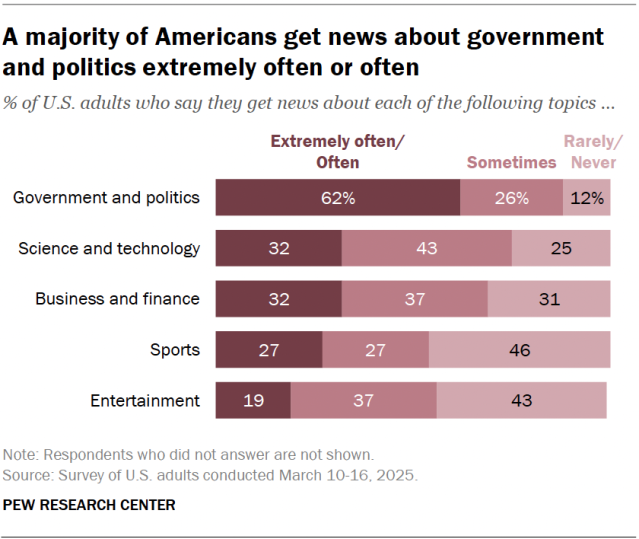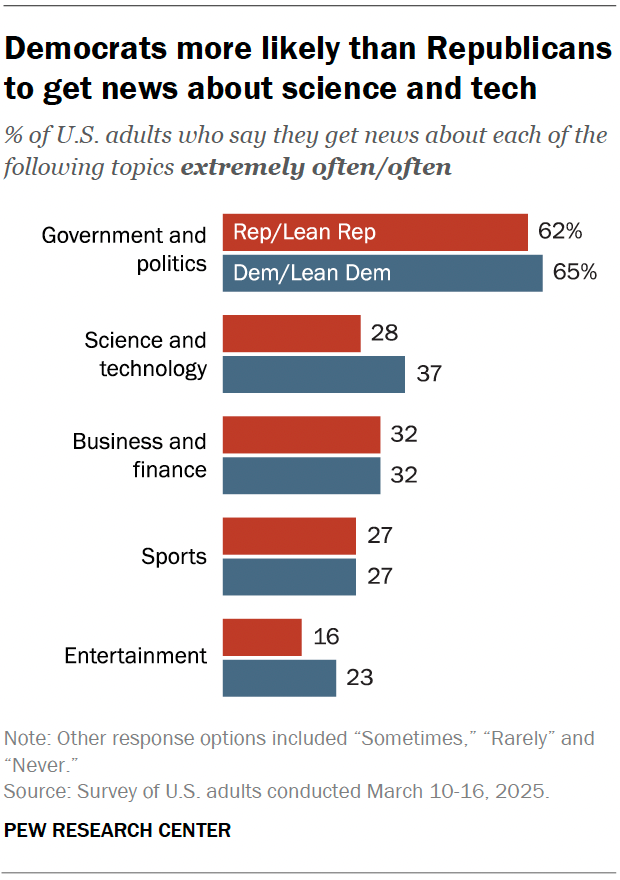More Americans say they get news about government and politics than four other topics asked about in a March 2025 Pew Research Center survey.
Older Americans and those who voted in the 2024 presidential election are especially likely to get government and political news. Younger adults, for their part, are more likely than older people to get news about entertainment.

A majority of Americans (62%) say they get news about government and politics extremely often or often. Smaller shares say they frequently get news about:
- Science and technology (32%)
- Business and finance (32%)
- Sports (27%)
- Entertainment (19%)
Which Americans are more likely to get certain types of news?

Older adults are more likely to say they get news on most of the topics we asked about extremely often or often. However, younger adults are more likely than older people to frequently get entertainment news.
This age difference is most prominent when it comes to news about government and politics. Among Americans ages 65 and older, 77% get this kind of news extremely often or often, compared with half of those ages 18 to 29.
Meanwhile, about a third of adults under 30 get entertainment news extremely often or often, compared with 19% or fewer in older age groups.
Similar shares of Republicans and Democrats say they get news on several topics. Identical or nearly identical shares in each party (including independents who lean toward those parties) get news about government and politics, business and finance, and sports extremely often or often.

However, Democrats are slightly more likely than Republicans to say they frequently get news about science and technology and about entertainment.
Americans who were validated as having voted in the 2024 presidential election are also more likely than those who were eligible but did not vote to get news on three topics we asked about:
- Government and politics (70% vs. 45%)
- Business and finance (36% vs. 23%)
- Science and technology (34% vs. 27%)
However, these two groups are equally likely to get news about sports (27% each). And nonvoters are more likely than voters to get news about entertainment (17% vs. 25%).
